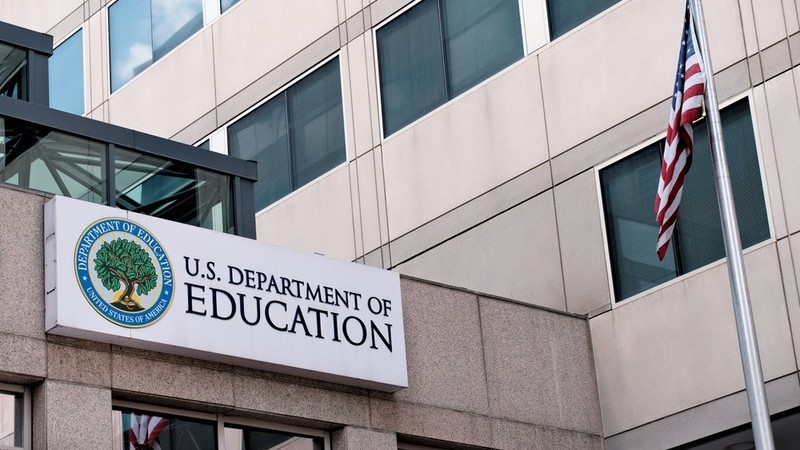
The Department of Education is making artificial intelligence (AI) exposure and literacy a top priority in a key higher education grant program, aligning with White House efforts to expand AI use across educational institutions.
The Fund for the Improvement of Postsecondary Education (FIPSE) was established in 1972 and is overseen by the Office of Postsecondary Education, which provides grants for innovative projects within postsecondary education institutions.
This year’s funding, set to be awarded on Dec. 31, allocates $50 million in grants for schools launching projects that use AI to improve teaching, learning, and student success, as well as for institutions expanding access to AI and computer science courses.
That priority aligns with executive orders signed by President Donald Trump earlier this year, according to the FIPSE priorities document, including an order in April that directed the integration of AI into K-12 schools to build the future AI workforce by leveraging public-private partnerships to expand those opportunities.
Specifically, the department said it wants to see applications for projects that integrate AI literacy skills and concepts into teaching, help students use AI responsibly and detect AI-generated disinformation or misinformation online, and establish partnerships with state or local educational agencies.
Organizations that want to enter into those agency partnerships should use AI to provide high-quality instructional resources or tutoring, personalize learning through adaptive learning technologies, and promote classroom or school operational efficiency, including improving instruction or services for students with disabilities, according to the department.
Projects can also use AI to strengthen teacher preparation and expand access to computer science. Those projects should support efforts to deliver AI and computer science credentials in rural areas, embed the subjects into teacher training, and expand course offerings across higher education.
The department also encouraged additional partnerships with state and local agencies to boost K–12 AI literacy and create dual-enrollment options for students to earn college or industry credentials.
Beyond AI, other priorities of the Trump administration for FIPSE include protecting and promoting civil discourse on college and university campuses, reforming accreditation standards, and building capacity for high-quality short-term programs.
Accredited colleges and universities, consortia, and nonprofit organizations are eligible to apply for FIPSE grants but can only submit one proposal for each priority area. Applications are due Dec. 3, according to the department.
“Under the Trump Administration, we are witnessing a transformative shift in higher education, one that is setting a new course for a brighter future,” said Under Secretary of Education Nicholas Kent in a statement. “These priorities will ensure that grantees have the resources needed to build on our Administration’s successes and support initiatives that will continue to enhance the educational experience for all students.”
